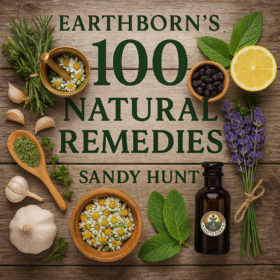-
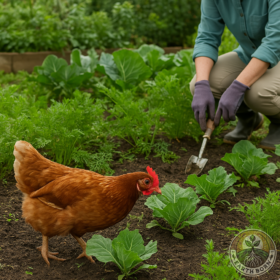
🐔 One or Two Chickens, a Healthier Garden: The Hidden Magic of Free-Range Companions
Incorporating just one or two free-range chickens into your garden is a gentle and surprisingly effective way to enhance your organic gardening ecosystem. These humble hens do far more than provide fresh eggs—they’re hardworking companions that feed your soil, tackle pests, and boost plant vitality. Let’s dig into the benefits and practicalities of keeping a few feathered friends. 🌿 The Benefits of Chickens in the Garden 🐛 Natural Pest Control Chickens are nature’s pest patrol. They’ll happily gobble up: Slugs Caterpillars Beetles Grasshoppers Ants and their eggs This reduces the need for chemical pesticides and helps keep your plants thriving… Read more…
-
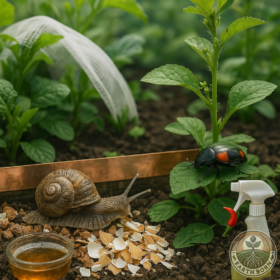
🐌 Organic Ways to Control Snails and Other Pests in South Africa
Snails chewing through your seedlings? Aphids sucking the life from your herbs? You’re not alone. Many South African gardeners—especially those growing organically—face the same frustrations. But you don’t need harsh chemicals to win the battle. Nature offers powerful solutions that work with your garden’s ecosystem, not against it. Here’s a guide to tried-and-tested organic methods to control common pests in your garden, including the why and how for each one. 🐌 1. Snails & Slugs These slimy leaf-munchers love cool, damp conditions—making them a common problem in many parts of South Africa, particularly during the rainy season. ✅ Crushed Eggshells… Read more…
-
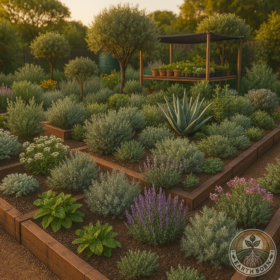
💧 Water-Wise Gardening with Medicinal Plants in South Africa
Practical Organic Solutions for Growing with Less Water In South Africa, water scarcity is a reality for most gardeners. But as organic growers – especially those focused on medicinal plants – we have a unique opportunity: to design gardens that are both healing and water-efficient. This guide will walk you through practical, step-by-step methods to create a water-wise medicinal plant garden, no matter where in South Africa you’re rooted. 🌍 Step 1: Know Your Region & Rainfall Start by asking:Where does my rain come from and when? 🌧️ Western Cape: Winter rainfall ☀️ Gauteng, KwaZulu-Natal, Limpopo, Mpumalanga: Summer rainfall 🏜️…
-
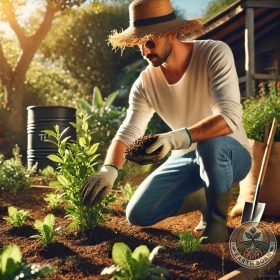
🌿✨ Don’t Toss Those Tea Leaves – Feed Your Garden Instead! ✨🌿
Your morning cup of tea isn’t just good for your soul — it’s great for your garden too! 🍃 Used tea leaves (from black, green, or rooibos tea) are a fantastic organic boost for your soil and plants. Here’s why: 🌱 Benefits of Tea Leaves in the Garden: ✅ Natural Fertilizer – Tea leaves are rich in nitrogen and trace minerals that feed your plants and improve soil structure. ✅ Worm Magnet – Earthworms LOVE tea leaves. They’ll aerate your soil and leave behind nutrient-rich castings (aka worm poop, aka plant gold 🌟). ✅ Compost Hero – Add tea leaves…
-

🌶️ Why Are My Chillies Hotter Than My Friend’s?
Ever wondered why two chilli plants, grown under similar conditions, can produce different levels of heat? If your chillies are spicier than your friend’s, sunlight exposure might be the reason! ☀️ Sunlight & Capsaicin Production Afternoon sun is more intense than morning sun, leading to higher stress levels for your plants. Higher heat stress = more capsaicin (the compound responsible for chilli heat). If your chillies receive more afternoon sun, they experience greater stress, making them 🔥 spicier than those in gentler morning sunlight. 🌡️ Temperature Variations Morning sun is milder, so your friend’s chillies may not experience the same…
-
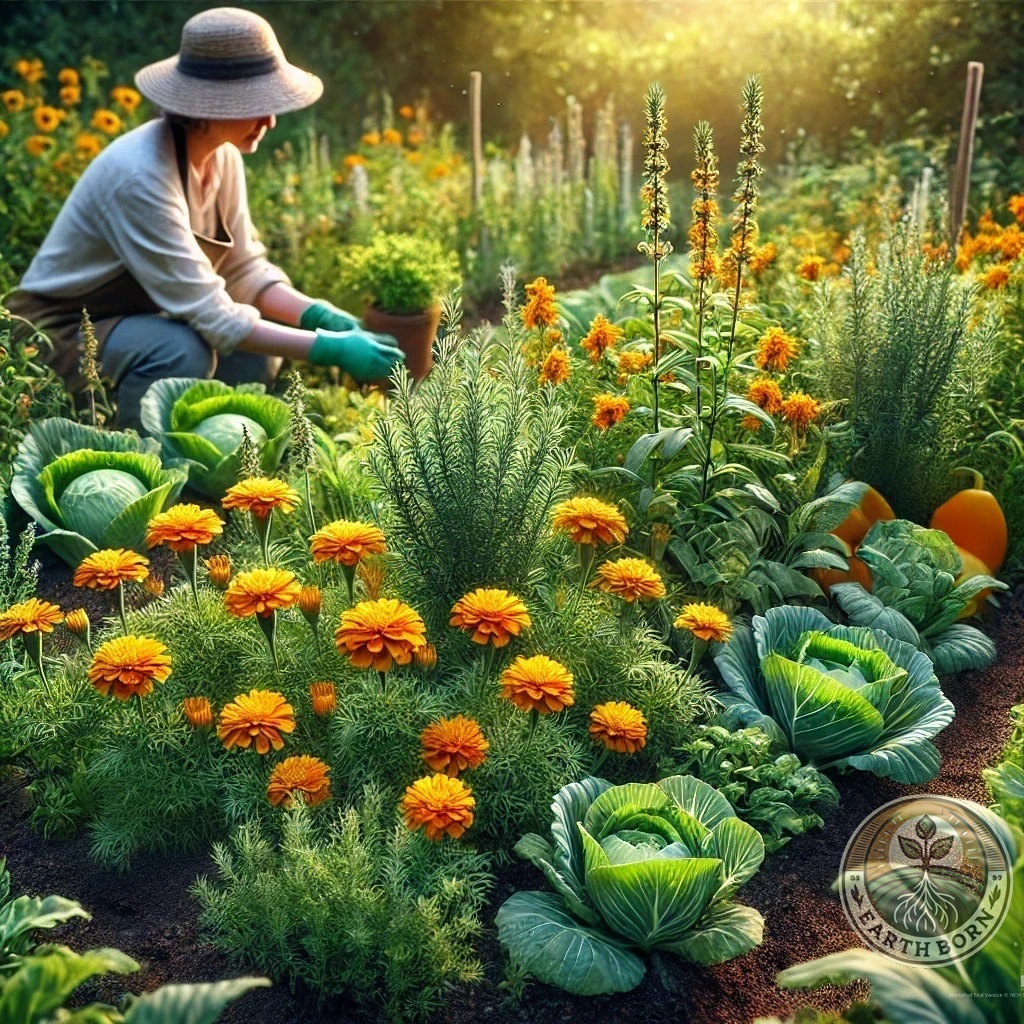
🌿 Natural Pest Repellent Plants for Your Garden 🐛🚫
Keeping pests at bay doesn’t require chemicals—nature has its own solutions! Some plants naturally repel insects while supporting companion plants and attracting beneficial pollinators. Let’s explore Calendula, Marigolds, and other pest-fighting plants that can help your garden thrive! 🌻🌿 🌼 Calendula (Calendula officinalis) – The Guardian of the Garden Calendula, often called pot marigold, is a powerful companion plant that helps repel common pests and attract beneficial insects like ladybugs and hoverflies. ✅ Why It Works: Calendula’s sticky resin traps aphids and whiteflies, keeping them away from nearby plants.🐛 Repels: Aphids, whiteflies, tomato hornworms.🌿 Best Companions: Tomatoes 🍅, carrots 🥕,…
-
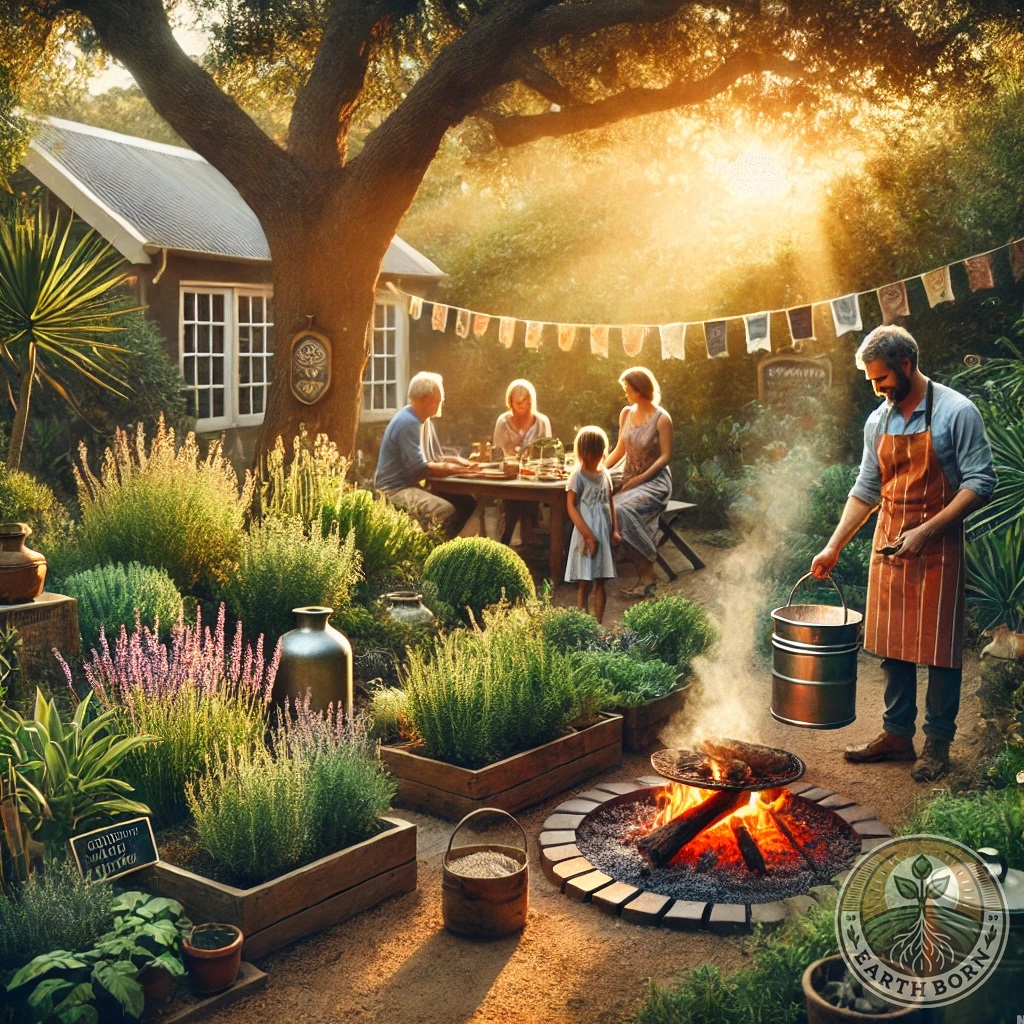
Wood Ash for Soil Enrichment
🔥 A Natural Boost for South African Gardens! 🌿 Wood ash is one of the best natural soil enhancers you can use in your garden. Rich in minerals like potassium, calcium, and magnesium, it improves soil fertility and structure, helping your herbs and vegetables thrive without synthetic fertilizers. If you have a fireplace, braai, or wood stove, you already have access to this free, organic gardening gold! 🌱 Why Use Wood Ash in Your Garden? ✅ Increases Soil pH – Ideal for alkaline-loving plants like lavender, rosemary, and thyme.✅ Provides Essential Minerals – Supplies potassium (K) for strong roots, calcium…
-
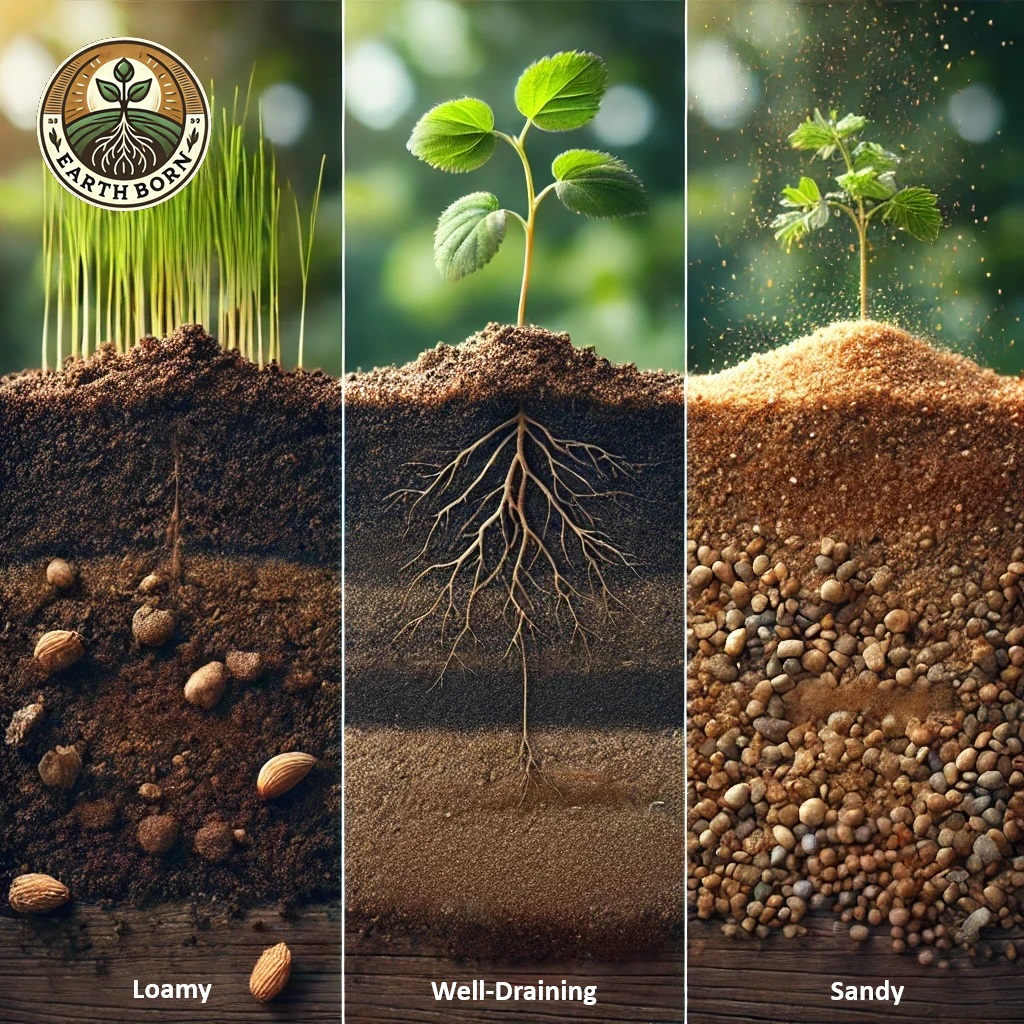
🌿 Understanding Soil Types
Loamy, Well-Draining & Sandy Soil! 🌱 Choosing the right soil is key to growing healthy plants! Here’s a breakdown of Loamy, Well-Draining, and Sandy Soil—what they are, how they’re used, and how to keep them fertile. 1️⃣ Loamy Soil – The Gardener’s Dream! 🌍 ✅ What is it?Loamy soil is a perfect mix of sand, silt, and clay, creating a soft, nutrient-rich, and well-balanced growing medium. It retains moisture while still allowing proper drainage. ✅ Best Used For:🌱 Vegetables & Herbs – Carrots, tomatoes, basil, and most crops love loamy soil.🌾 Flower Gardens – Roses, daisies, and lavender thrive in…
-
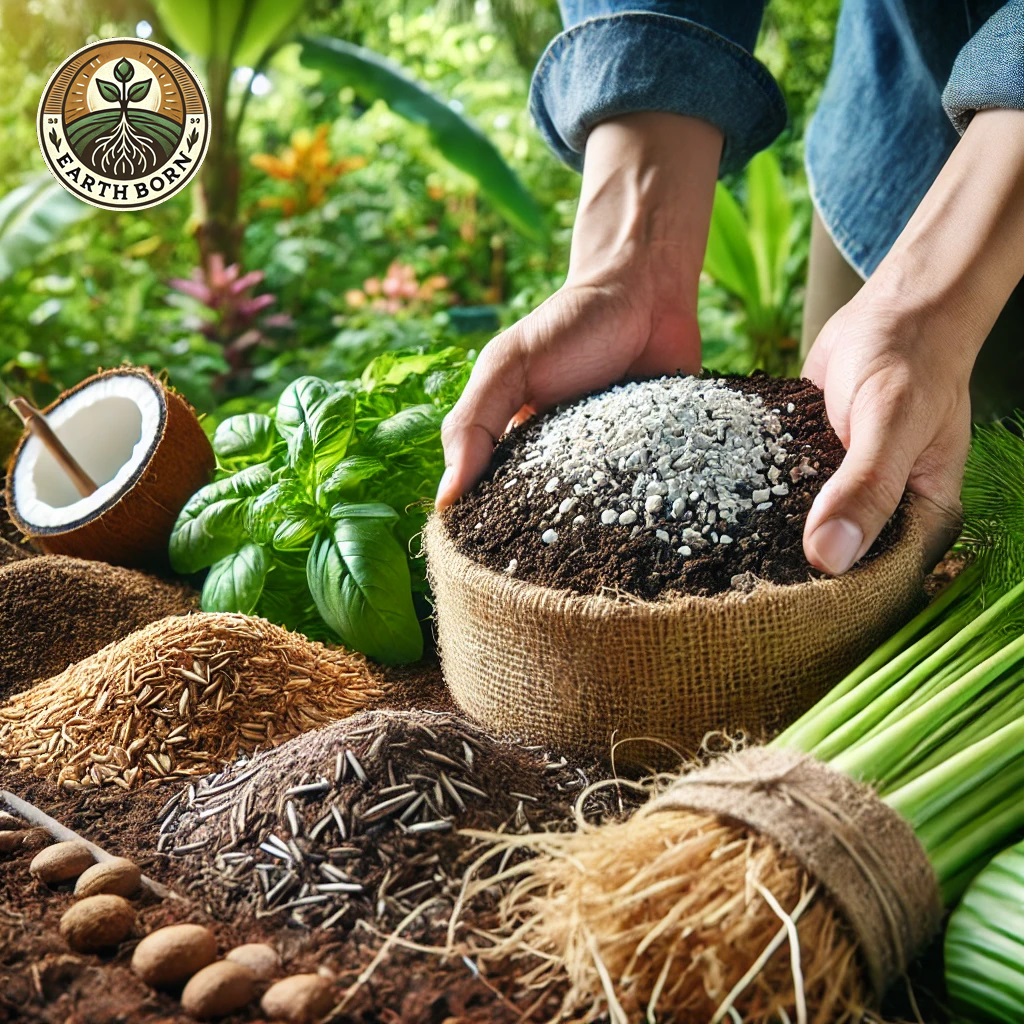
Is Perlite Organic?
No, perlite is not an organic substance because it is a naturally occurring volcanic mineral rather than a carbon-based organic material. However, it is 100% natural and inert, making it safe for organic gardening. 🌱 What is Perlite? Origin: Perlite is a type of volcanic glass that expands when heated, creating its lightweight, porous texture. Appearance: White, lightweight, and has a porous structure that holds air and moisture. Function: Improves soil aeration and drainage by preventing soil compaction. 🌿 Is Perlite Safe for Organic Gardening? ✅ Yes! While it is not “organic” in the sense of being plant- or animal-derived,…
-
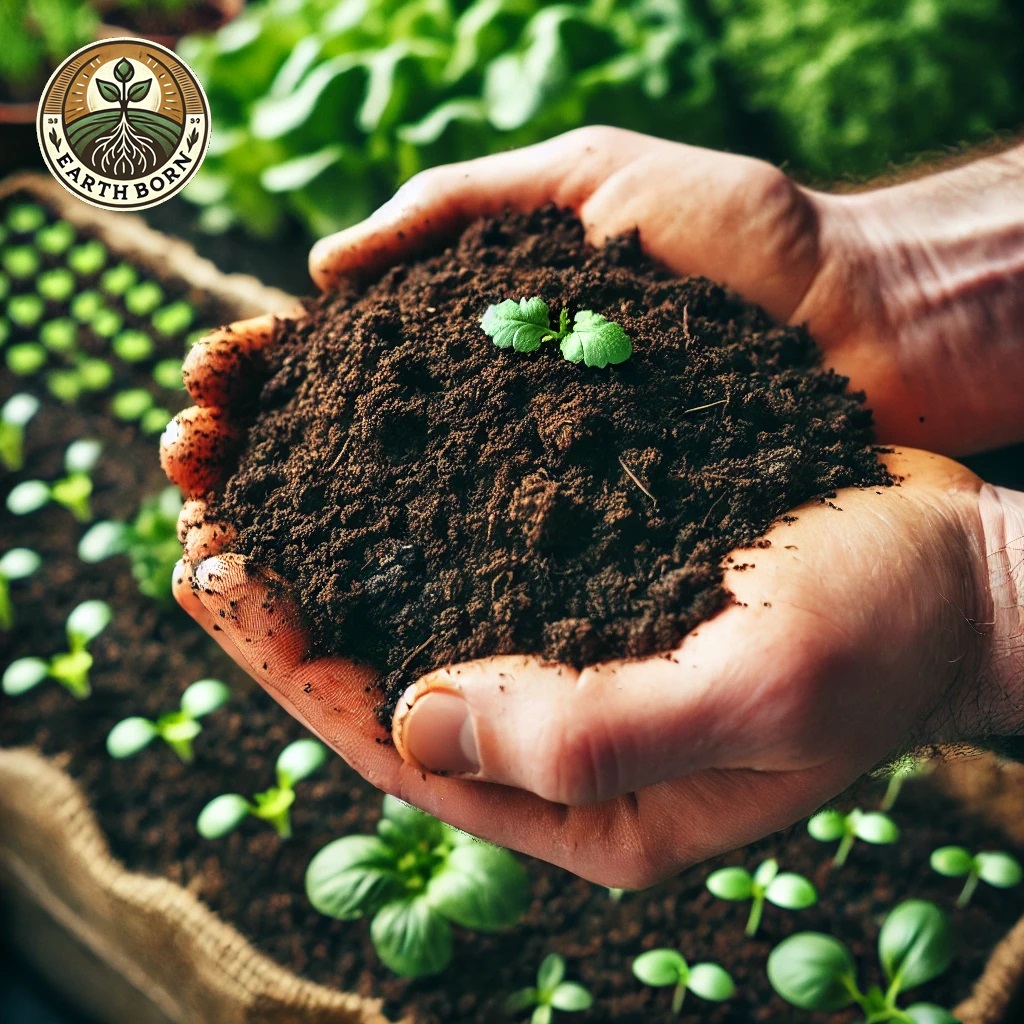
Loamy Soil
Loamy soil is a well-balanced, nutrient-rich soil that is ideal for gardening and farming. It is a blend of sand, silt, and clay in roughly 40% sand, 40% silt, and 20% clay proportions, giving it a soft, crumbly texture that retains moisture while allowing good drainage. 🌱 Why is Loamy Soil Ideal for Plants? ✅ Good Drainage & Moisture Retention – Holds enough water for roots without becoming waterlogged.✅ Rich in Nutrients – Provides essential minerals for healthy plant growth.✅ Easy to Work With – Soft, crumbly texture makes it easy to dig and cultivate.✅ Aerated & Well-Draining – Prevents…
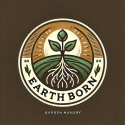

 **Meet Sprout!** Sprout is your friendly gardening companion at Earthborn, always ready with helpful advice on plant care, medicinal herbs, and natural gardening solutions. From seedling to harvest, Sprout provides expert guidance to nurture your garden and your well-being—making gardening easy, fun, and naturally rewarding.
**Meet Sprout!** Sprout is your friendly gardening companion at Earthborn, always ready with helpful advice on plant care, medicinal herbs, and natural gardening solutions. From seedling to harvest, Sprout provides expert guidance to nurture your garden and your well-being—making gardening easy, fun, and naturally rewarding.
